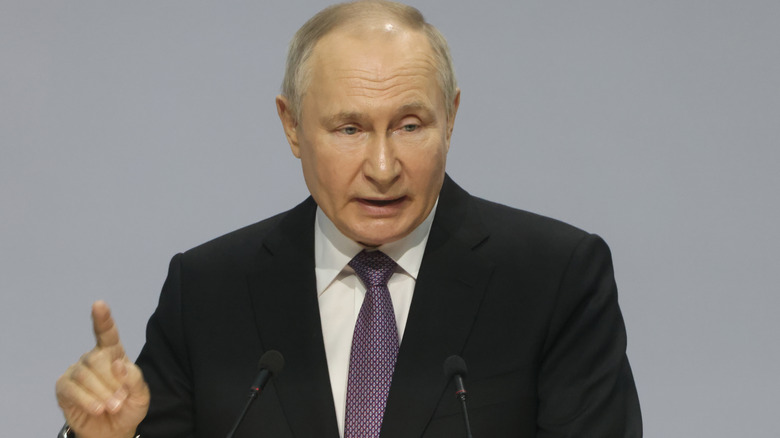
Contributor/Getty Images
Earlier this week, Tucker Carlson sat down with Russian President Vladimir Putin and asked serious questions. Among the topics raised was the work being done by billionaire tech CEO Elon Musk, who the president believes to be smart. Putin referenced recent reports that Musk’s Neuralink brain chip has been implanted in a human for the first time.
Carlson asked Putin what he thought of the implants. Putin replied ”I think there’s no stopping Elon Musk. He will do as he sees fit.” That said, the president doesn’t think Musk should be set free to do whatever he wants.
He stated that ”this process [AI and Neuralink] needs to be formalized and subjected to certain rules.” He didn’t, however, go into detail on what rules he believes need to be in place. He said that in the case of Musk, ”you’ll need to find some common ground with him. Search for ways to persuade him.”
Putin believes more should be done

Vertigo3d/Getty Images
In the interview, the Russian President elaborated on why he believes regulations should be in place for people like Musk, who are developing AI. He compared the threat of AI development to the threat of gunpowder and nuclear weapons. But the president argued that the cat is already out of the bag, stating that ”it is impossible to stop research in genetics or AI today.”
The president stated that the world will have to face the supposed threats from AI somewhere down the line. When the time comes, the world will ”reach an international agreement on how to regulate these things.”
Musk previously had a similar worry about AI as the Russian President. In the past, Musk also stated that AI has the potential to be more dangerous than nukes. But he isn’t the only one in tech worried about AI.
Just last year, Musk joined Apple Cofounder Steve Wozniak and AI Experts to ‘Pause Giant AI Experiments.’ Microsoft CEO Bill Gates also raised concerns in the past about AI development. He argued that there needs to be rules in place to mitigate the downsides of AI.
Additionally, legislative bodies have taken notice of the potential harm AI can bring. Last year, members of the European Parliament voted in favor of discussing the AI Act. The laws would act as preventative measures to stop abusive use cases of AI. Some of the cases include behavior profiling and collecting facial data from public and private sources.